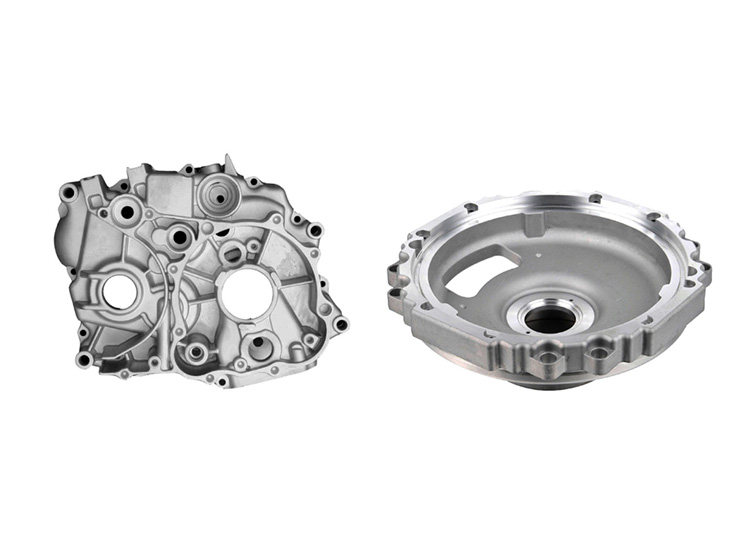Stahl Specialty Company for Beginners
Stahl Specialty Company for Beginners
Blog Article
Our Stahl Specialty Company PDFs
Table of ContentsThe Ultimate Guide To Stahl Specialty CompanyStahl Specialty Company for DummiesStahl Specialty Company Can Be Fun For EveryoneThe smart Trick of Stahl Specialty Company That Nobody is DiscussingThe 20-Second Trick For Stahl Specialty Company
The subtle distinction depends on the chemical web content. Chemical Comparison of Cast Light weight aluminum Alloys Silicon promotes castability by minimizing the alloy's melting temperature and improving fluidness during spreading. It plays an essential role in enabling elaborate mold and mildews to be filled accurately. Furthermore, silicon contributes to the alloy's strength and use resistance, making it important in applications where resilience is critical, such as automotive parts and engine elements.It additionally enhances the machinability of the alloy, making it simpler to process into completed items. In this way, iron adds to the general workability of aluminum alloys.
Manganese contributes to the stamina of light weight aluminum alloys and improves workability. It is typically used in functioned aluminum items like sheets, extrusions, and profiles. The existence of manganese aids in the alloy's formability and resistance to fracturing throughout construction processes. Magnesium is a lightweight component that gives strength and influence resistance to light weight aluminum alloys.
Zinc enhances the castability of aluminum alloys and assists regulate the solidification process throughout spreading. It enhances the alloy's strength and hardness.
The Buzz on Stahl Specialty Company
Due to the fact that aluminum-silicon alloys have good spreading properties, high gas homes, straightforward processes, and excellent deterioration resistance, aluminum-silicon alloys are most typically utilized in the die-casting sector in the house and abroad. At the very same time, aluminum-silicon alloys are also relatively early and commonly acknowledged alloys created and made use of in die-casting. After constant study and renovation, a lot of the present worldwide mainstream aluminum-silicon alloys have been wrapped up and are nothing more than A356, A360, A380, ADC12, B390, and A413.
The main thermal conductivity, tensile strength, yield toughness, and elongation vary. Amongst the above alloys, A356 has the highest possible thermal conductivity, and A380 and ADC12 have the least expensive.

The 25-Second Trick For Stahl Specialty Company
In precision spreading, 6063 is appropriate for applications where intricate geometries and high-quality surface area finishes are paramount. Instances consist of telecommunication enclosures, where the alloy's superior formability permits streamlined and aesthetically pleasing layouts while preserving architectural honesty. In the Lighting Solutions industry, precision-cast 6063 components develop classy and efficient lights fixtures that call for detailed forms and excellent thermal efficiency.
(https://pinshape.com/users/7350411-stahlspecialc#prints-tab-open)
The A360 displays remarkable elongation, making it suitable for complicated and thin-walled parts. In precision spreading applications, A360 is appropriate for sectors such as Customer Electronics, Telecommunication, and Power Devices.

In accuracy casting, aluminum 413 shines in the Customer Electronic Devices and Power Tools markets. This alloy's remarkable deterioration resistance makes it an excellent option for exterior applications, making certain resilient, sturdy items in the stated sectors.
Fascination About Stahl Specialty Company
As soon as you have decided that the aluminum die casting procedure appropriates for your task, a vital following action is choosing the most ideal alloy. The light weight aluminum alloy you choose will considerably influence both the casting process and the buildings of the end product. As a result of this, you need to make your decision thoroughly and take an educated method.
Establishing one of the most ideal light weight aluminum alloy for your application will mean considering a broad selection of qualities. These comparative alloy qualities follow the North American Pass Away Spreading Association's guidelines, and we have actually separated them into 2 categories. Casting Foundry. The recommended you read very first category addresses alloy features that impact the production process. The 2nd covers characteristics impacting the residential or commercial properties of the final item.
The alloy you choose for die spreading directly influences several elements of the casting process, like just how very easy the alloy is to deal with and if it is vulnerable to casting defects. Hot splitting, likewise understood as solidification splitting, is a regular die spreading problem for light weight aluminum alloys that can lead to interior or surface-level splits or splits.
Stahl Specialty Company for Beginners
Specific aluminum alloys are much more vulnerable to warm breaking than others, and your selection must consider this. One more usual issue found in the die casting of light weight aluminum is pass away soldering, which is when the cast adheres to the die walls and makes ejection hard. It can harm both the actors and the die, so you ought to look for alloys with high anti-soldering residential or commercial properties.
Corrosion resistance, which is already a significant attribute of light weight aluminum, can vary substantially from alloy to alloy and is a crucial particular to take into consideration depending on the ecological problems your product will be subjected to. Wear resistance is an additional residential or commercial property commonly looked for in aluminum products and can differentiate some alloys.
Report this page